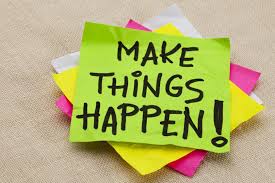People are usually the biggest challenge in managing projects and keeping them on track.
 In my last video and article on what derails a project and how to fix it, I spoke about the essential elements that people need to do to keep projects on schedule.
In my last video and article on what derails a project and how to fix it, I spoke about the essential elements that people need to do to keep projects on schedule.
In the following segment, that has a unique twist, I am having a project update discussion with Sonia the project manager.
As you can see I know that Sonia is the helpful, sensitive type and wants people to feel be happy and keep things harmonious.
I on the other hand am more concerned with results. So I need to consider my approach with her to not come across as too aggressive and pushy.
My goal is to get commitments in writing so we can be clear on expectations and problem solve together rather than resorting to excuses and blaming.
I will see how this unfolds next week and if the milestones and tasks get put in writing. Hopefully be able to film another session.
Again the 3 things to remember is
- Make sure people understand the importance of keeping commitments and how to keep others informed
- Put milestones and tasks in writing so people know what is expected of them and by when.
- Confrontation is essential but needs to be done well to not destroy trust and break team spirit.
I hope you found this segment helpful and please leave your comments and subscribe now to keep informed of new videos and blog posts.



